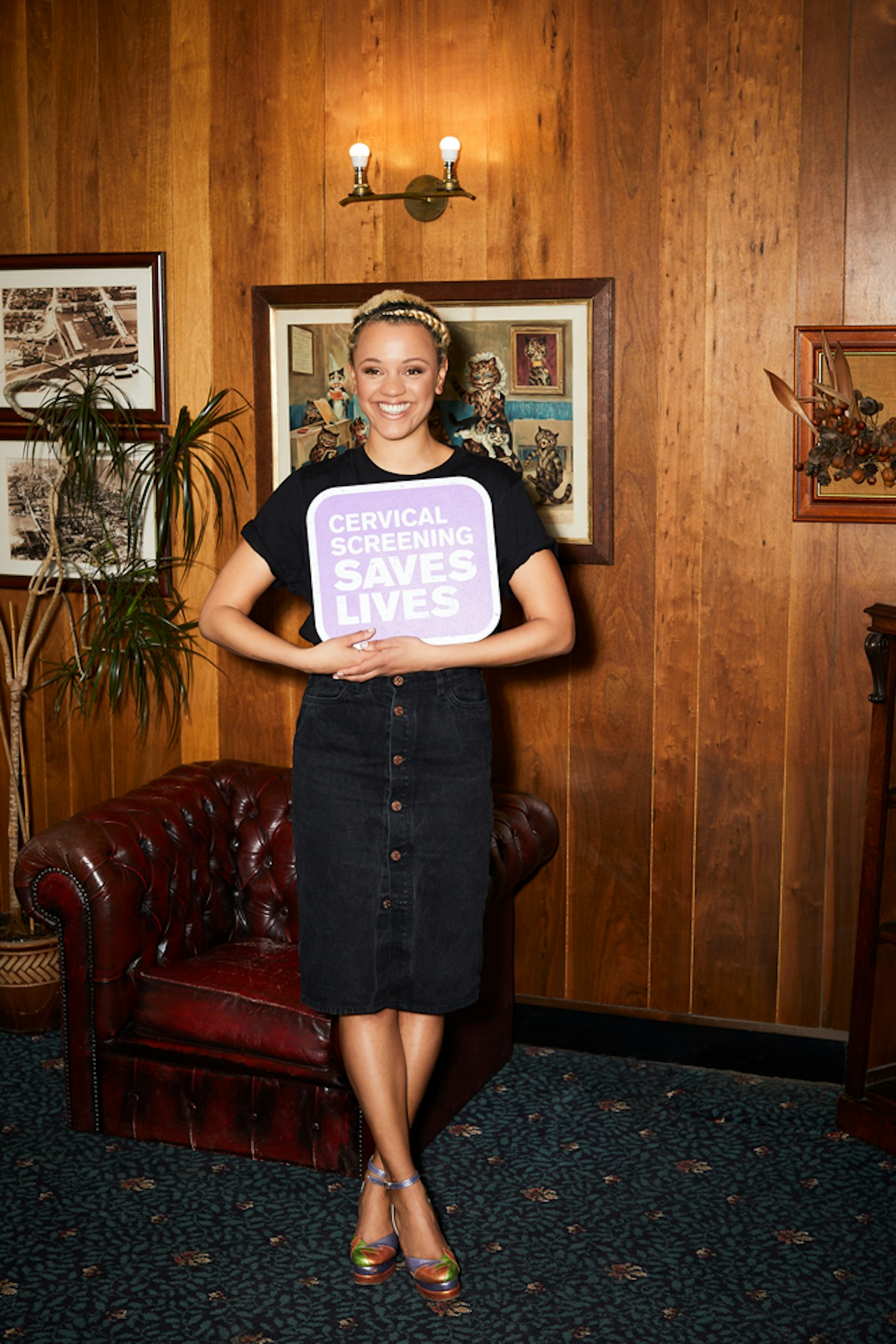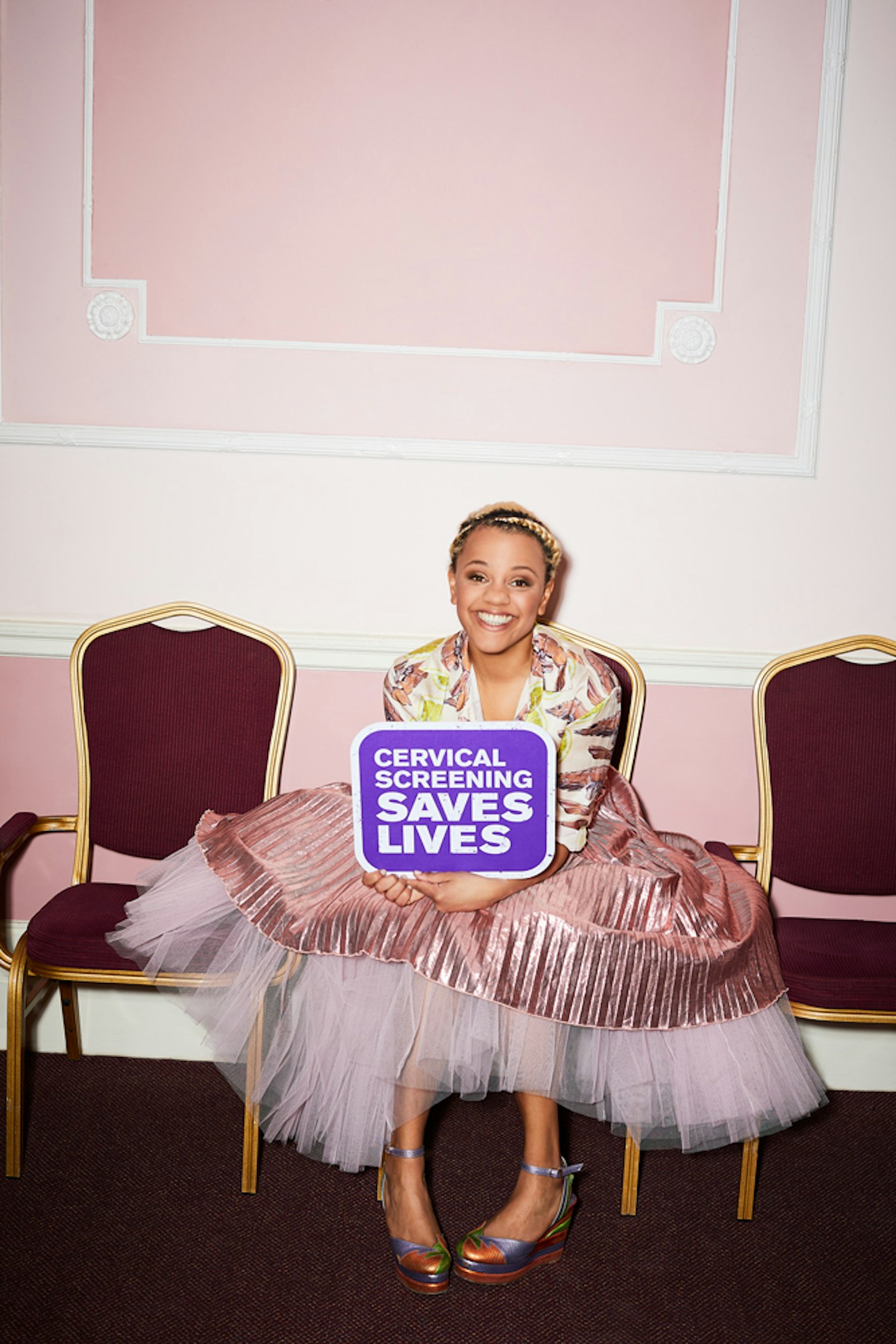After losing a friend to cervical cancer, Broadcaster and Presenter Gemma Cairney is encouraging more women to attend their cervical screening. Regular tests can help stop cervical cancer before it starts, as they identify potentially harmful cells before they become cancerous.
Unfortunately, 2,600 women are diagnosed with cervical cancer in England each year, and around 690 women die from the disease. It is estimated that if everyone attended screening regularly, 83% of cervical cancer cases could be prevented, so as Gemma points out, it's really important to attend your screening.
Gemma spoke exclusively to Grazia about her experience of cervical screening, and NHS Obstetrics & Gynaecology Doctor Anita Mitra aka ‘The Gynae Geek' and author of Your No-Nonsense Guide To ‘Down There’ Healthcare has also shed some light on the life-saving test...
What Was Your Last Cervical Screening Like?
'My last test took a maximum of ten minutes including waiting time. I had a female nurse who clearly explained what she was going to do, and that made me feel really comfortable. Once the speculum was inserted, she took a sample, and then it was done and I got on with my day,' says Gemma.
She adds that 'attending cervical screening for some women can feel a bit embarrassing, but it’s over so quick and well worth it, especially if it means that it can prevent cancerous cells developing on our cervix. There’s something very special about a woman’s body and I think we should do our best to try and protect it.'
What Would You Say To Women Who May Be Nervous About Their Test?
Gemma says, 'I’d advise anyone who is feeling a bit nervous about their cervical screening to talk to friends and family. I have an amazing group of women around me that I can talk to about anything, and they were great at reassuring me before my first cervical screening. I'd encourage everyone to ask their friends about their experience, because it’s really important that we talk about it. Everyone is different, but if you're feeling worried, talk to your nurse as she’ll be able to suggest things to make your screening more comfortable.'
Dr Anita comments: 'I always tell people who feel nervous about their test to chat to the nurse, they can speak to you before the procedure and explain the process. Knowing exactly what is going on, each step of the process and the nurse talking you through the equipment can definitely put you at ease.'
Grazia recognises that cervical screening can be especially difficult for women who have experienced sexual violence. Working with your nurse is important to ensure that they understand your needs and can make you feel as comfortable as possible. Remember, you're in charge of your screening and can ask to stop at any time.

Why Did You Want To Attend?
Gemma says, 'we really should make the most of the NHS Cervical Screening Programme. The fact that we can go for free for a test that takes just a few minutes, which can help prevent cancer is incredible. I would encourage all women and people with a cervix between the ages of 25 and 64 to go for cervical screening when invited. If you missed your last test, book an appointment at your GP practice as soon as possible.'
Dr Anita adds that 'the whole point of cervical screening is to detect harmful cells on the cervix before they potentially develop into cancer. So even if you are healthy and have no symptoms it’s still important to attend screening regularly, when invited. This is because abnormal cells don't cause any symptoms and even women who have unfortunately gone on to develop cancer may experience no symptoms at all until the cancer has reached an advanced stage. If you do experience symptoms such as abnormal vaginal bleeding during or after sex, book an appointment with your GP, don’t wait until your next cervical screening appointment.'

How Did You Feel After You Had Your Cervical Screening And Were You Nervous For Your Results?
'Every time I have a cervical screening, which I have done a few times in my life, I always think, “why was I worried about that?”,' admits Gemma. 'It's always better to be on top of your health and get checked out, even if it means waiting for results.'
Dr Anita added, 'it is natural to feel nervous awaiting the results of your screening however, don’t let the fear of finding out stop you from attending. You should receive your results within a few weeks and the vast majority of women will receive normal results and require no further follow up for 3 or 5 years depending on your age. If the screening has detected abnormal cells, don’t worry. The doctor will talk you through what treatment is needed – if any. They may even just keep a closer eye on you.'
How Can I Get My Mum, Sister Or Friend To Attend Their Screening?
Gemma says that 'as women, we should take it upon ourselves to support anybody who is eligible to attend their screening, particularly if they are putting it off. When my friends have made excuses, I've encouraged them to attend by going along with them, and then going for a nice lunch afterwards. I really like doing things that are good for myself and sharing that experience with others.'
Cervical screening attendance is at 20-year low and continuing to decline. Reasons for this include embarrassment, lack of knowledge, fear of pain and not having the time. However, there aren’t the same barriers when it comes to intimate waxing, which is on the increase. A new Life Saving Wax initiative has launched in beauty salons across the country with beauticians being trained to open up the conversation on cervical screening and encourage women to look after themselves on the inside just as they do on the outside.
Cervical Screening Saves Lives. Don’t ignore your cervical screening invite and encourage the people that you love to get screened if they are overdue a test. Search ‘NHS cervical screening' or click here for more information. #CervicalScreeningSavesLives
A new Life Saving Wax initiative, in partnership with Treatwell, has been launched in beauty salons, across the country. Beauticians are being trained to open up the conversation on cervical screening and encourage women to look after themselves on the inside just as they do on the outside.
